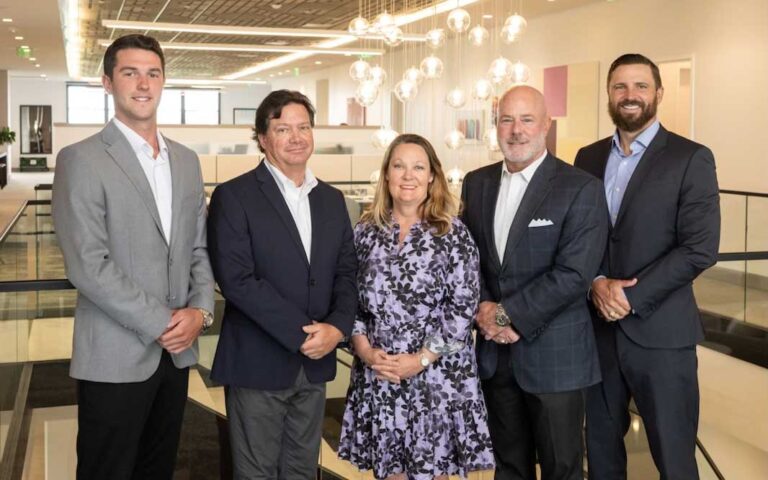As part of SCBizNews, South Carolina’s media engine for economic growth, the Charleston Regional Business Journal (CRBJ) provides business, government and civic leaders with in-depth regional news coverage including corporate profiles and strategies, philanthropic involvement and long-term regional insight. CRBJ recently launched Coping with COVID, a column highlighting industry impact of the new coronavirus through conversations with select business and community leaders. In an interview with The Beach Company’s CEO John Darby, CRBJ gleans insight into the effects of COVID-19 on regional development, construction and property management.

JOHN DARBY
President and CEO
“A lot of things, we’ve put into place the last couple of years,” Darby said.
The Beach Co. CEO John Darby said it’s important to remember that everyone is working through the COVID-19 pandemic together.
“There is no one person that’s an authority on this, and don’t try to be,” Darby said. “We’re very realistic that every day is a new day.”
Darby said The Beach Co. had been training staff and preparing them to work remotely prior to the pandemic, including making sure everyone was equipped with a laptop. That made the transition over the past few week easier.
“A lot of things, we’ve put into place the last couple of years,” he said. “Our technology has really helped us. … From a technology standpoint, we couldn’t have been better prepared for this remotely.”
The Beach Co. CEO John Darby said it’s important to remember that everyone is working through the COVID-19 pandemic together.
“There is no one person that’s an authority on this, and don’t try to be,” Darby said. “We’re very realistic that every day is a new day.”
Darby said The Beach Co. had been training staff and preparing them to work remotely prior to the pandemic, including making sure everyone was equipped with a laptop. That made the transition over the past few week easier.
“A lot of things, we’ve put into place the last couple of years,” he said. “Our technology has really helped us. … From a technology standpoint, we couldn’t have been better prepared for this remotely.”
Some employees still need to go into the office to collect mail, pick up checks and take care of other business, but Darby said he’s limited the number of people who are allowed to enter the office.
“The best thing we could do for them is let them know that when they go to the office, it’s clean, it’s safe, other folks haven’t been in there spreading germs and so forth,” he said.
All of The Beach Co.’s construction personnel are also still working; Darby estimated the company has about 500 people working across all of the company’s projects.
“If we lose that, we, as a state and a country, if the construction workers can’t continue to perform, that would be a huge setback for our economy as a whole,” he said.
Darby said he’s been upfront with employees about the state of the company and made sure that all of them understand that they’re still expected to be productive.
“You can be successful each week if everybody stays focused,” he said.
The company also has a weekly call with its board of directors to keep them apprised of how the business is doing. The executive team has a weekly call, and the company has held several video conferences with investors and shareholders.
“Each week, it’s important to review what you’ve accomplished,” Darby said. “We have 300 (office) employees and we want them to understand that we continue to move the needle.”
Darby said The Beach Co. has been developing a set of best practices for rent collection during the pandemic and working with tenants as needed to address issues as they come up.
“We try to stay as informed as we can and help these tenants get through these stressful times,” he said. “There are programs out there that are available to them and we try to coach them to take advantage of them, and we’ve also worked with certain tenants with their rent payments.”
The Beach Co. is still leasing apartment units during the pandemic, and though Darby said traffic is down, he’s found that if someone is inquiring about a unit, they’re more likely than usual to commit. The same goes for purchasing single-family homes, he said.
“If you do get a prospect, you can rest assured they are very interested in purchasing something because they took the effort in a time like this,” he said.
The Beach Co. has just started talking about what life is going to look like when things return to normal, but Darby predicted that it’s going to cost more to operate properties because people will want less contact with other humans.
For example, he said people will probably prioritize having a bigger apartment instead of living in a high-density area, and they may begin demanding elevators that are operated using mobile phones to avoid touching buttons.
“Technology is already there but I think people are going to have to retrofit their existing buildings and common areas,” Darby said. “This will just become the norm, with less contact with the human body.”
He added, though, that recovering from the pandemic isn’t “going to be a light switch and all that will come back overnight. It will be a slow ramp-up, kind of like we saw after 9/11 and after the recession.”
“It may happen a little quicker, but I just don’t think people will jump to plan vacations … until after the fall,” Darby said.
Related Articles




